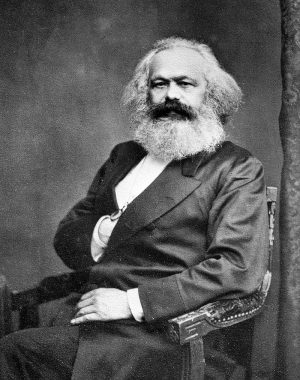Karl Marx was a German philosopher and political theorist who tried to approach religion from a scientific point of view. He once wrote that “Religion is the opium of the people.” This particular comment of Marx about religion has been quoted for centuries by both theists and atheists. However, the real meaning of Marx’s views on religion is interrelated with his theories on economics and politics.
Marx did not discuss religion as extensively in his works as he did in economics and politics. However, he included religion in his explanations of power imbalances in a capitalist society as he believed it was a tool that the bourgeoisie used to keep control over the proletariat. Marx’s analysis of religion is only one part of his overarching theory about society’s economic and political structures. Scholars point out that Marx’s theories on society shed light on his views on religion.
The Basis of Religion
Marx believed that religion has no history of its own. It only came into existence as a result of economic inequalities and oppression. He claims that matters in religion are nothing but matters in society and that religion is not the problem itself, but a symptom of the problem. Religious doctrines are not important. Instead, what is important is studying the economic conflicts in society. Marx considered religion according to its function and how it is used by the competing classes, not according to its own teachings. Marx points out that religion is an instrument used by the dominant social class to distract the oppressed social class from its misery. This distraction takes the form of an ideology that capitalists spread to the people, which eventually seeps into the general consciousness of the masses. The state, which obeys the dictates of the wealthy and influential capitalists, enforces the dissemination of capitalist ideology, including religion. Religion asserts the existence of a god who says that poverty and misery are part of his plan for the poor. And so, in the midst of their disadvantaged situation, the workers become anesthetized from their miseries. To keep the engine of the existing economy running, the emotional pains of the engine operators must be numbed. The workers must be entertained with an illusion. This is what Marx meant when he said that “religion is the opium of the people.”
Marx’s Three Objections to Religion
The first criticism that Marx fired at religion was that it was not logical. It was a delusion and only a veneration of superficial reality, and at the same time, it refused to face the real source of problems. Next, religion invalidates man’s self-respect by making him meek and tolerant of existing conditions. Third, religion is two-faced. It may teach useful morals to society, but at the same time, it is also used by the dominant social class. It is true that Jesus preached about being kind to the poor, but the Christian Church allied itself with the cruel Roman Empire, which had slaves as an important part of its economy. The Catholic Church continued to teach about kindness and rewards in the afterlife while it enriched itself during the Middle Ages.
Not the Enemy of the Proletariat
Marx clarified that although religion distracts the proletariat from its miseries, it is not their enemy. Religion may be a delusion, but it is the groans of the abused and tyrannized against real oppression. It is not right to demand the abolition of religion because it is a delusion that comforts people who are in a comfortless situation. Marx is consistently critical of capitalist society and does not condemn religion summarily. Instead, using religion, he intensified his attacks on capitalism by showing that the profit-driven system had become heartless and was the greater evil. Religion only provided hope for the hopeless proletariat and promised them, however vaguely, that there was hope in another life. Religion only gives relief from pain in the same way opioids do. The only problem that Marx sees in this analogy is that the drug does not cure the disease but only eases the symptoms. As Marx saw it, religion helped the masses bear the pain and not make them wonder about the cause of the pain. It helped them look forward to some form of celestial happiness while their oppressors continually injected more opium into their bodies.
